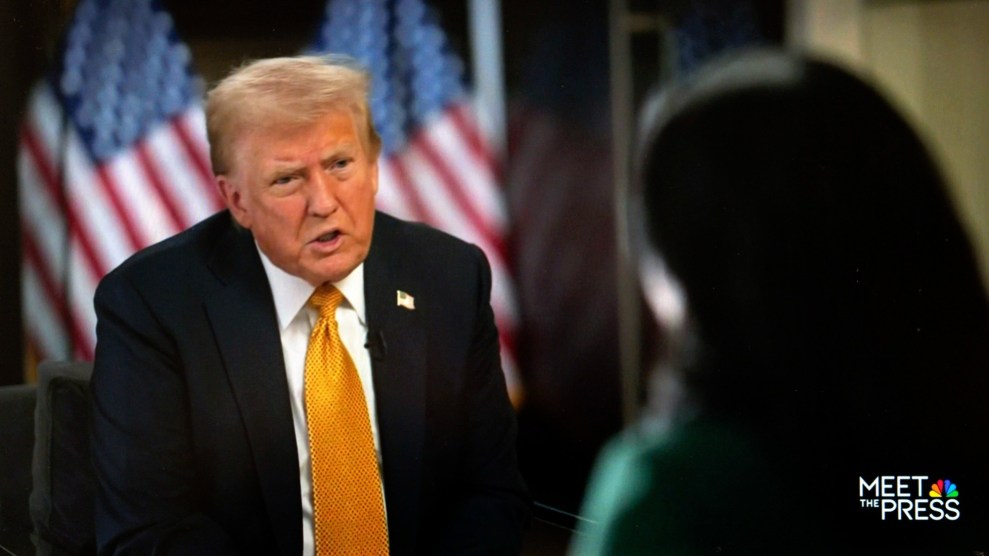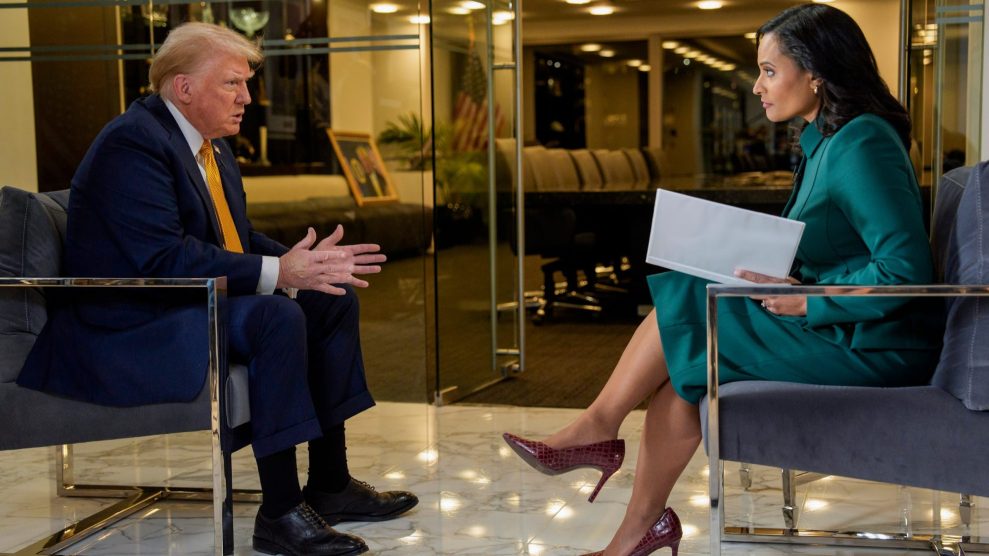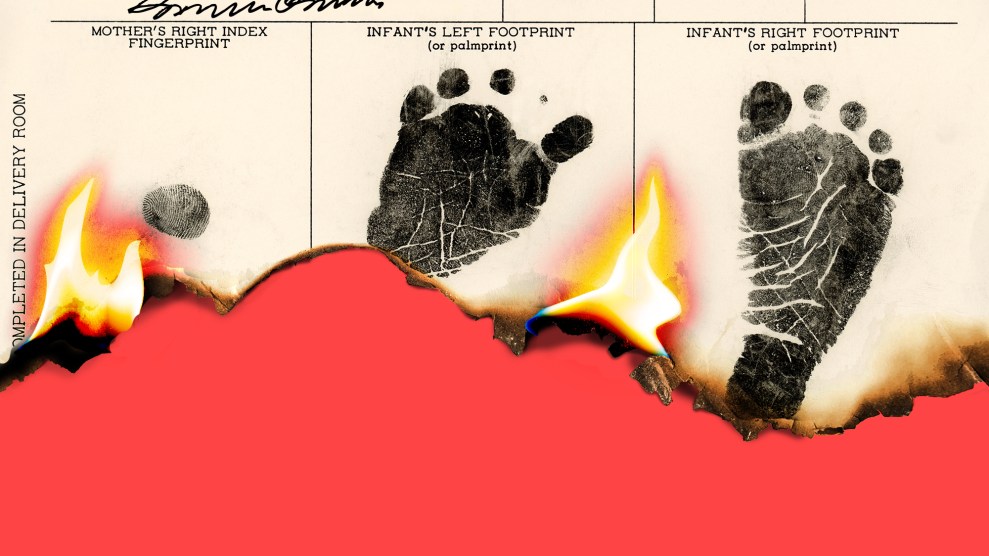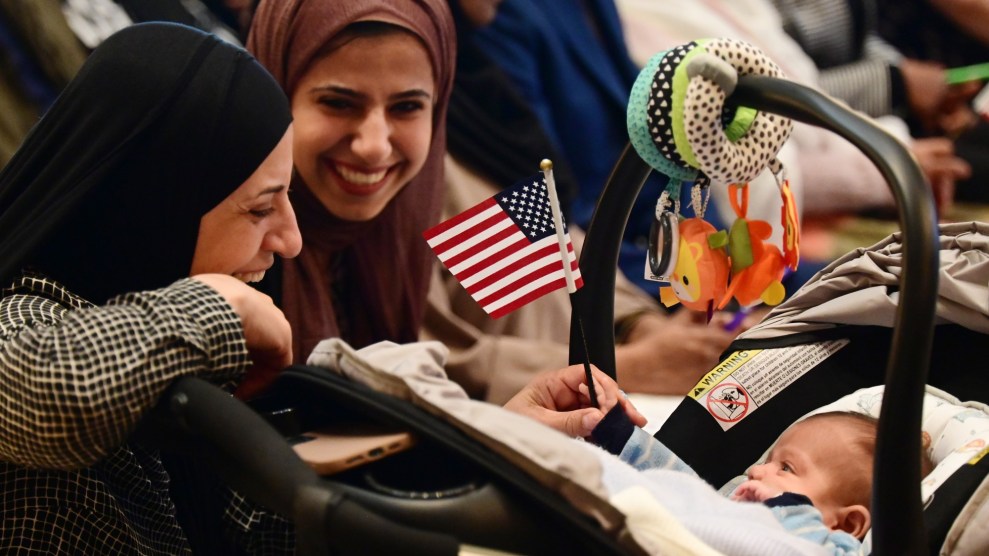
Trump sits for his first post-election network interview with Kristen Welker. NBC News/ZUMA
In an interview with NBC’s Meet the Press aired on Sunday, Donald Trump doubled down on two of his main campaign promises: mass deportation and ending birthright citizenship.
“You promised to end birthright citizenship on day one,” Kristen Welker asked. “Is that still your plan?”
“Yes,” Trump responded, “absolutely.”
Welker pushed back, reminding Trump that the 14th Amendment’s Citizenship Clause dictates that “all persons born or naturalized in the United States, and subject to the jurisdiction thereof, are citizens of the United States and of the state wherein they reside.” When asked if he would work around the amendment, Trump said, “Well, we’re going to have to get it changed or maybe have to go back to the people. But we have to end it.”
As I’ve previously reported here and here, Trump actually can’t end birthright citizenship with the stroke of a pen. That would likely be ruled unconstitutional.
But he and his immigration restrictionist allies have a decades-long playbook to question the Citizenship Clause they can borrow from:
[F]or years, immigration restrictionists have continued to advocate for amending or reinterpreting the 14th Amendment, charging that birthright citizenship serves as a “magnet” for unlawful immigration and so-called “birth tourism.” Specifically, they argue that children of undocumented immigrants are not “subject to the jurisdiction” of the United States because of their parents’ irregular status.
Trump also indicated his administration would have no qualms about conducting sweeping mass deportation campaigns, even if it means removing American citizens alongside their undocumented family members. “I don’t want to be breaking up families,” Trump told Welker, “so the only way you don’t break up the family is you keep them together and you have to send them all back, even kids who are here legally.”
In a second Trump presidency, opponents of birthright citizenship might also try to renew attacks on a Supreme Court precedent affirming the widely accepted interpretation of the 14th Amendment to include all US-born children, regardless of their parents’ immigration status.
In the 1898 Wong Kim Ark case, the justices found that a San Francisco-born child of long-time Chinese immigrants was, indeed, a US citizen.
“The 14th Amendment affirms the ancient and fundamental rule of citizenship by birth within the territory,” Justice Horace Gray wrote for the majority, “including all children here born of resident aliens, with the exceptions or qualifications (as old as the rule itself) of children of foreign sovereigns or their ministers, or born on foreign public ships, or of enemies within and during a hostile occupation of part of our territory.”
Some legal experts and observers have noted that Trump and his allies could attempt to latch onto that last sentence of the landmark Supreme Court ruling as a loophole to attack birthright citizenship. Under that strategy, they might resort to the far-fetched claim that large migrant flows to the US-Mexico border constitute an “invasion” of the United States and, therefore, the children of unauthorized immigrants should be excluded from the 14th Amendment’s guarantee of birthright citizenship.
Critics of ending birthright citizenship for the US-born children of undocumented immigrants argue it would not only constitute bad policy, but also a betrayal of American values and, as one scholar put it to me, a “prelude” to mass deportation.
“It’s really 100 years of accepted interpretation,” Hiroshi Motomura, a scholar of immigration and citizenship at UCLA’s law school, told me of birthright citizenship. Ending birthright citizenship would cut at the core of the hard-fought assurance of equal treatment under the law, he said, “basically drawing a line between two kinds of American citizens.”
During the Meet the Press interview, President-elect Trump also lied about the United States being the only country in the world that has birthright citizenship, which has been easily and widely debunked.
















